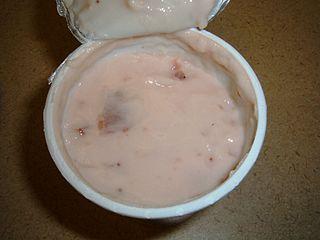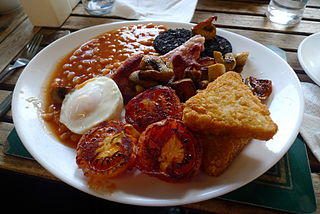Foods and Drinks That Can Worsen Diarrhea
Diarrhea is one of those common symptoms that we all experience at some time or the other. Most of the time it is acute meaning that it lasts for only a short period of time before the bowel habit gradually returns to normal. No treatment is required in the majority of cases but supportive measures like adequate hydration are important. However, one of the biggest problems with getting over diarrhea is that most people rely on “old wives’ tales” about the right way to manage it rather than proper medical facts. One of the major hurdles in this regard is what to eat or not eat when you have diarrhea.
Home Treatment for Diarrhea
Diarrhea is one of the acute symptoms that can often be managed at home. If in doubt however, then seek professional medical treatment. The key to treating diarrhea at home is to let your body overcome the disturbance that has disrupted normal bowel habit. But in the process, provide support for your body with enough fluid and nutrients. Water alone will not do. You need a proper oral rehydrating solution which can be purchased in sachet form from most drug stores and supermarkets.
Resting is equally important. Remember that you are losing vital fluid and nutrients with diarrhea and you should not strain your body any further. Many of the diseases that do cause acute diarrhea are often viral in nature. One of the best ways to overcome an acute viral infection is to rest. There are many other aspects that you need to consider in home treatment as outlined in how to stop diarrhea. But you need medical treatment if you have severe diarrhea where you are :
- Losing copious amounts of fluid.
- Unable to rehydrate adequately.
- Experiencing large amounts of mucus and even some blood in the stool.
- Exhibiting the signs and symptoms of dehydration.
Diarrhea Diet
Most of us will alter our diet drastically when we have diarrhea. We may even stop solid foods. But this is one of the first mistakes that we make. Unless you are vomiting, you should not stop solid foods. The BRAT diet consisting of mashed bananas, rice, applesauce (or grated apples) and plain toast was always advised for acute diarrheal conditions like the stomach flu. However, the BRAT diet is only useful for the first meal or two after the vomiting stops. If you only have diarrhea then you should be eating regular foods, although a bland diet is preferable.
It is important to have a balanced meal with adequate carbohydrate, protein and fat. Your body needs the nourishment to overcome the illness. Do not forget the fluids. It is an important part of a diarrhea diet. Whereas you normally consume about 1.5 to 2 liters of fluid in a day, in the event of diarrhea you may should double your fluid intake. There are foods that can cause diarrhea which are important to avoid. But just as important are those foods that can worsen existing diarrhea, which may otherwise be harmless when a person is not suffering with diarrhea.
Live Culture Yogurt

Live culture yogurt is known for its ability to restore the normal intestinal flora (‘good bowel bacteria’). Understandably it would seem like a good food to consume during and just after diarrhea since the normal intestinal flora is disturbed. However, this is not always the case. Many people with diarrhea, and even after diarrhea resolves, experience lactose intolerance.
It is not the permanent lactose intolerance that we know of. Rather this is a secondary lactose intolerance that may affect some people for a short while after diarrhea. Most dairy will not be well tolerated and live culture yogurt should therefore be avoided. Rather speak to a doctor or pharmacist about a good probiotic containing the spores of the microbes that you need.
Coffee and Caffeine Drinks
Bowel activity is usually faster than normal in diarrhea. And the last thing you would need is a stimulant like caffeine to further speed up the process. Caffeine may also worsen the abdominal cramping that is often seen with diarrhea. Any caffeinated drink can be a problem but coffee is usually the caffeine source of choice. It may give you a little boost when dealing with the fatigue after an acute diarrheal episode but it should be avoided. Caffeine is also a diuretic so it adds to the fluid loss that you have already experienced with diarrhea. If you have to drink coffee, then have it black (dairy can irritate the bowels as discussed above under live culture yogurt) and decaffeinated is the way to go until your bowel habit returns to normal.
Spicy Meals
Spicy meals can give you a real boost when you are feeling drained. The spices used in hot meals are able to give that chilli burn on the tongue because they are chemical irritants. Just as it irritates the tongue, it can also irritate the intestinal lining. Even without any previous diarrheal illness, a spicy hot dish can alter bowel habit and cause some burning at the bottom end. So it is best avoided when you have diarrhea. Although you should be eating a balanced diet, hold back on the spice altogether even if spicy meals are a normal part of your diet. A little salt to make foods more palatable is all that is needed for now.
Alcoholic Drinks
Alcohol, like caffeinated beverages, act as a diuretic. It speeds up the water loss through urine. The different substances within alcoholic drinks can also draw out fluid from the body into the bowel thereby worsening diarrhea. It is never a good idea to consume alcohol when you have diarrhea or any illness for that matter. Contrary to popular belief, alcoholic drinks will not kill the bad “bugs” that may be causing your diarrhea. Alcohol has a host of effects, most of which are considered pleasurable yet strain the body. When you are ill, your body does not need any additional strain. Not only can it worsen your diarrhea and dehydrate you further but drinking alcohol may cause your condition to deteriorate rapidly.
Greasy Foods

There may be many reasons for diarrhea and it is important to remember that not all the digestive processes are working as normal with most diarrheal illnesses. Your body’s ability to digest different foods and the bowel’s ability to absorb different nutrients may be impaired to different degrees. Sometimes digesting and absorbing fat in particular can be a problem.
It may not be an issue with small amounts of fat but greasy foods could pose a problem. Your gallbladder may not have enough bile available to emulsify fats or the fat-breaking enzymes may be in short supply. Eating very fatty meals may leave the fat undigested and unabsorbed in the bowel. This causes a fatty type of stool which has an offensive odor and is known as steatorrhea. Ultimately greasy foods can worsen the diarrhea.
Salty and Preserved Foods
Foods with a high content of sodium, preservatives and other food additives can be a problem in diarrhea. These substances are mainly seen in processed foods and can draw out fluid from the body into the bowels. In this way it can worsen diarrhea. It is not just about foods that taste salty. In fact over 70% of the daily sodium is ingested in processed foods which may not have a salty taste but are laden with sodium. Preservatives and additives are also excessive in most processed foods to make it last longer and improve the taste and color. It is best to keep the diet simple with fresh foods that are prepared at home with minimal spice. Restaurant foods and fast foods can also be laden with many of these preservatives and additives.
Soda and Sports Drinks

We know that water alone will not suffice for rehydration following diarrhea, especially where there is profuse vomiting. But opting for a soda or sports drinks can actually worsen diarrhea. This is where an ORS (oral rehydrating solution) is so important when considering fluid replacement for rehydration.
It is not just water that is needed but also a good balance of electrolytes. The key is the right measure of electrolytes as too much, or even too litte, can draw out water from the body through osmosis. This water then stays in the bowels thereby worsening diarrhea. A commercially available ORS ensures that the water to electrolyte ratio is optimal for absorption and replenishment. Soda, sports drinks and energy drinks were not formulated for this purpose.





